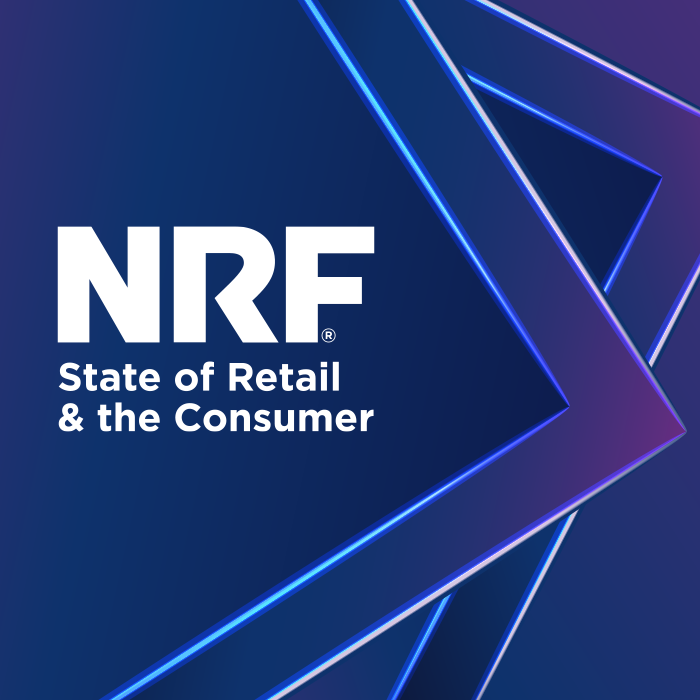How a retail job sets workers up for career success
)
For Connie Droge, working at Nordstrom was just a summer job, an attempt to make a little money while she studied for her Medical College Admission Test.
She never made it to medical school; she didn’t even take the test. She did, however, find a rewarding career, one in which she found value in helping people working on a team. Now executive vice president of stores and asset protection for Burlington, “I want to make sure that I’m pouring into people in the same way.”
The Value of a Retail Career
Retail is a growing industry where talent of all types and from all parts of the U.S. can start, build and accelerate a rewarding career. Read the report.
Burlington offers development programs that target students and early career retail professionals, helping them grow in their careers through internships, mentorship and training.
“Whether in marketing, merchandising or on the buying team, we offer those entry pathways so that younger leaders can understand the culture of our company,” Droge says. “We want to get them excited about what the possibilities are.”
It also means allowing early career professionals to explore horizontal moves into other departments, pairing them with partners in that field to give them a realistic job view, shadowing opportunities and job training. Then, with additional knowledge, if they still want to make the move in that direction, she says, a pathway and career plan would be built to help them grow.
A solid career path
Moving from marketing into merchandising isn’t the same swerve that Droge had from medicine into store operations. And not everyone has to have that same conversation she did in telling her parents she wasn’t going to med school. Still, convincing parents that a retail job can — and does — lead to a career may take some convincing.
Research from the National Retail Federation Foundation can put solid numbers behind that conversation. “The Value of a Retail Career” lays out the opportunities for growth in retail careers, with the average career move occurring every 14.5 months — and bringing a 15.2% pay increase.
It’s a strong case for a solid career path for those who want to stay in retail at the store level and for those who want to move into a corporate role. It also outlined how talents developed through retail careers could transfer into some of the most highly sought skills in other industries.
NRF Foundation RISE Up training program
The NRF Foundation training and credentialing program provides foundational employability skills to help people land jobs and get promoted in retail and beyond.
Learn more about RISE Up.
“The research shows that a retail sales associate position can lead to more than 120 possible roles as a next step,” says Adam Lukoskie, NRF senior vice president and executive director of the NRF Foundation. “It also showed that retail positions offer opportunities to gain more than 700 different skills. It continues the narrative that there are career paths and there are lucrative wages in retail.”
Still, Lukoskie says, retailers need to be better at showing the career paths and potential timelines to workers. And there is work to be done with those who influence young people, such as guidance counselors and parents, to showcase the paths that a retail career affords.
“We as an industry have it — we just need to be more transparent, and communicating in a way that we feel is genuine and attainable. ‘Here’s the department leader. It’s a two- to three-year path line. Here are the things that you need to do to get there.’”
The NRF Foundation’s RISE Up initiative helps highlight positions that do not necessarily require a college degree. That coincides with a trend in which more and more members of Generation Z are forgoing a traditional four-year college degree in favor of trade schools or job-specific credentialing such as that offered by RISE Up.
Unlocking potential
While the RISE Up credentials help introduce retail as a valuable career, retailers are helping employees take the next step — and that’s where some are soaring.
At Old Navy and its Gap Inc. family, the program This Way ONward “helps unlock potential for economically marginalized, early-career talent aged 16-24,” says Steve Peters, senior vice president of Old Navy stores and operations, and executive sponsor of This Way ONward.
“The program provides a ‘way in’ with that first job, and a ‘way up’ for program alumni to continue their growth through networking, skills development and leadership opportunities that can help the employee take their next career step in any of our brands.”
Peters believes a retail job provides a “great starting point for a young person, especially if it is their first job. We believe that retail teaches valuable skills like confidence, interpersonal communication, problem solving, time management, conflict resolution and financial literacy — all of which can help the employee no matter what their career path looks like.”
Target’s programs might seem familiar, though at a scale appropriate for one of the nation’s largest retailers. Internships are common, and Target offers them in a dozen areas. It recruits on college campuses — more than 200 in all — and provides individualized employee training. A Career Hub and Learning Hub offer personalized career and learning recommendations, allowing each team member to chart an individual career path, says Kristen Lee, Target’s senior director of talent management. “These tools underscore our skills-based philosophy, intended to increase mobility and support each team member’s unique skills and aspirations.”
Target’s Prepare for Next helps front-line team members ready for leadership roles while Dream to Be offers tuition-free education assistance from more than 40 colleges, universities and learning providers. Some 90% of Dream to Be participants are members of front-line teams and are three times more likely to be promoted than those not enrolled in the program.
An industry of opportunity
Stories like that can make the case for that first job — and perhaps that next career move, Lee says.
“We’ve found that some of our best influencers are current team members who are already enjoying a rewarding career at Target, so we’ve set out to amplify their voices on our website and social media channels. Many stories we feature demonstrate examples of growth, from earning a certificate or degree, to the impact of mentorship, to starting in an hourly position in our stores and reaching senior ranks of leadership beyond. We know the value of demonstrating real-life examples of the many growth opportunities available through a career in retail.”
NRF Foundation RISE Up credentials
From Retail Industry Fundamentals to Warehouse, Inventory & Logistics, NRF Foundation's Rise Up credentials help people land jobs and get promoted in retail and beyond.
Those stories can be powerful. Now, with the NRF research available and the hard numbers that show the variety of a retail career, Lukoskie hopes that others will build their library of stories and data.
“We want to help retailers make the case for the value of retail jobs, to share the career pathways and to tell the stories of employees who have risen through the ranks,” he said. “Workforce organizations and departments of education are increasingly using career mobility and wage data to determine what industries receive training investments. Showcasing the retail industry and your company’s data in conjunction with your employees’ stories demonstrates the value of retail careers. Not everyone appreciates the vast career mobility in retail.”





